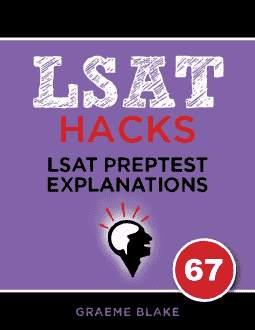This is an explanation for passage 4 of LSAT preptest 67, the October 2012 LSAT. This passage is about the paradox of omnipotence, and the fact that unlimited power places limits on a government.
This section has paragraph summaries and an analysis of the passage, links to the explanations for the questions are below.
Paragraph Summaries
- Introduction to paradox of sovereign omnipotence.
- Omnipotence can cause problems for sovereigns.
- It is in a sovereign’s interest to limit their own power. For example, by limiting their power to cancel loans. This can help them get loans in the first place.
- England and France needed capital to expand their empires. But their sovereigns couldn’t commit to paying loans back, and so lenders charged them higher rates of interest.
- The English Crown got lower interest rates after the Glorious Revolution. Parliament controlled the King’s money. Parliament represented commercial interests that valued property.
- Actually, the Glorious Revolution simply transferred omnipotence from the King to Parliament.
Analysis
First, vocabulary. Sovereign means King, Queen, Emperor or Empress or monarch. These are all words for the ruler of a country.
Sovereigns want to pay low interest rates. But they have a problem. They can cancel loans whenever they want, and throw the bankers in jail if they feel like it. Yay, no more debt!
But….throw your lenders in jail, and no one will lend to you, unless you pay very high rates of interest to compensate for the risk of losing money and going to prison.
Sovereigns couldn’t limit their power. So they couldn’t promise not to ruin lenders, and so sovereigns were stuck paying high rates of interest. The bankers were rightfully afraid that the sovereigns might cancel the loans.
After the revolution, Parliament had power over money, and interest rates dropped.
The final paragraph points out that now it is Parliament that has unlimited power. The paradox of omnipotence still exists.
So why did Parliament pay lower interest rates even though they were omnipotent? The middle part of paragraph 5 shows that Parliament was full of merchants who respected property rights.
So there were philosophical reasons that lenders could trust Parliament not to cancel loans. This was why interest rates fell, even though the paradox of omnipotence still applied to Parliament.
It’s helpful to know a bit about loans. You make your profit on a loan by charging interest. But if the debtor doesn’t pay back the loan, then you lose a lot of money.
So if you’re certain that someone will pay back a loan, then you can charge a low interest rate and still be sure of a profit. If you think that someone might not pay back the loan, then you have to charge a higher interest rate to compensate for the risk.


Leave a Reply